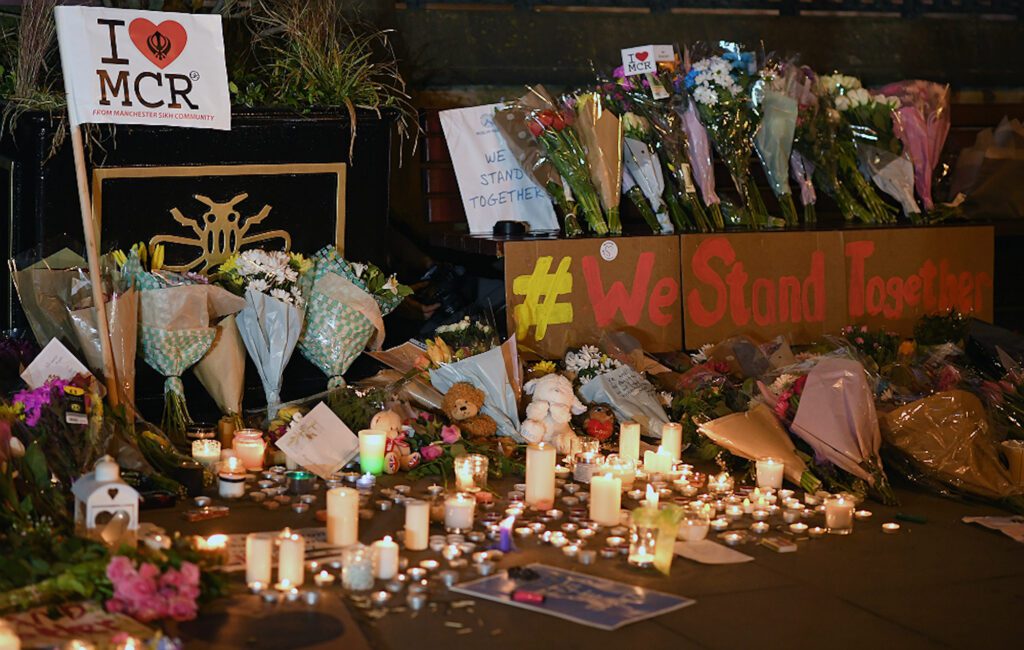Manchester Arena bombing inquiry finds MI5 missed significant chance to stop attack
A 207 page report has found two pieces of information about Abedi were assessed at the time by the security service as not being terrorism-related, but Chairman Sir John Saunders said, having heard from MI5 witnesses at the recent hearings, he considered that did not present an “accurate picture”, reports BBC News.
One officer admitted they considered a possible pressing national security concern on one of the pieces of intelligence but did not discuss it with colleagues straightaway and did not write up a report that same day.
As a result of this, Sir John said: “The delay in providing the report led to the missing of an opportunity to take a potentially important investigative action. Based on everything the security service knew or should have known, I am satisfied that such an investigative action would have been a proportionate and justified step to take. This should have happened.”

He also went on to conclude that the intelligence could have led to Abedi being followed to the parked Nissan Micra where he stored his explosives and later moved to a city-centre rented flat to assemble his bomb.
Sir John argued that if MI5 had acted on the intelligence received then Abedi could have been stopped at Manchester Airport on his return from Libya four days before the attack.
The public inquiry also found that the attacker was probably assisted by someone in Libya, contradicting an MI5 assessment which said no-one other than Salman Abedi and his brother Hashem were knowingly involved in the plot.
Sir John said was it “more likely than not that there were others who were knowingly involved in plotting a bomb, even though they might not have known all the details”.
But he added it was not possible, on the available evidence, to say who this might have been.
Sir John’s comments were published in the inquiry’s third and final report into the atrocity, which dealt with the radicalisation of Abedi and whether the attack could have been prevented.
The inquiry process began more than three years ago, with 194 days of oral evidence given by 267 witnesses.
Giving his response via BBC News, Andrew Roussos, whose eight-year-old daughter Saffie-Rose was killed in the blast, said: “We all heard the evidence and knew there were failings, but hearing how this tragedy might have been avoided is devastating for us all.
“This was a cataclysmic failure, and it is clear from all of the evidence we have heard about Abedi that there were many opportunities for the security services to have ensured the bombing never happened. In my view the fact that MI5 failed to stop him despite all of the red flags available demonstrates they are not fit to keep us safe and therefore not fit for purpose.”
Richard Scorer, principal lawyer at Slater and Gordon, who represented 11 of the bereaved families at the inquiry, said the report had been “deeply painful to read, but also eye-opening”.
He added: “On the issue of the preventability of this attack, inevitably the report provides less information than we would have wanted. But it is now very clear that there was a failure to properly assess key intelligence about Salman Abedi; a failure to put it into proper context, and – most catastrophic of all – a delay in acting on it.
“As a result of these failures, at the very least, a real possibility of preventing this attack was lost. This is a devastating conclusion for us.”
My statement following today’s publication of the final report of the Manchester Arena Inquiry. pic.twitter.com/E5q54861hI
— Suella Braverman MP (@SuellaBraverman) March 2, 2023
Home Secretary Suella Braverman also reacted to the report and wrote on Twitter: “Today is a difficult day. My thoughts are with their loved ones and all those who had their lives changed forever.
“On 22 May 2017, an act of pure evil took the lives of 22 people at Manchester Arena. I am committed to working with MI5, policing and partners to study the recommendations. Together we will do everything possible to prevent a repeat of this horrifying attack.”




